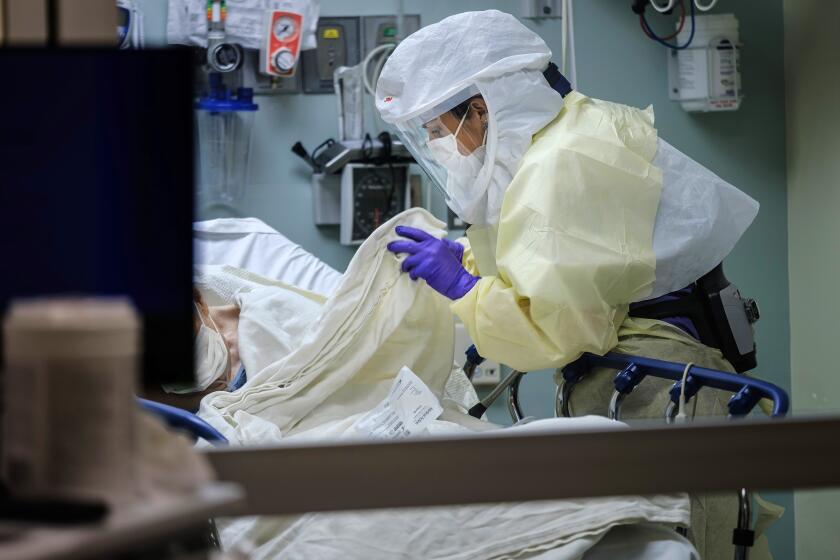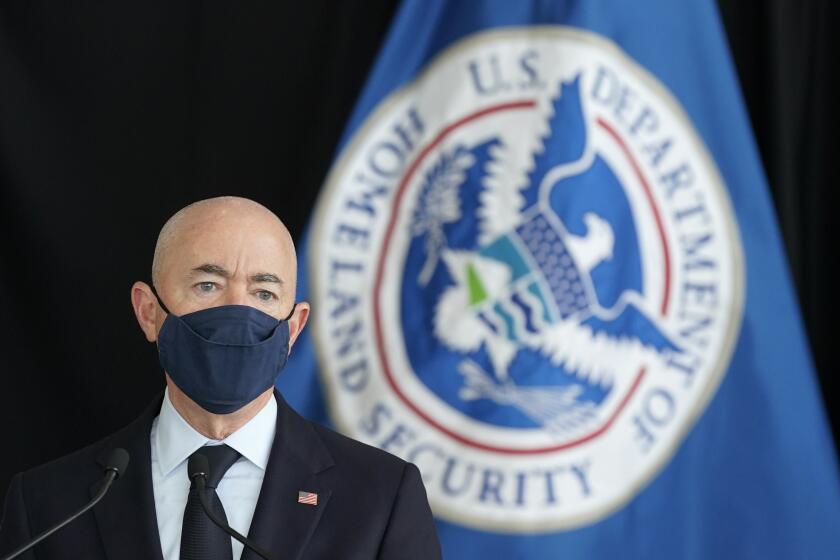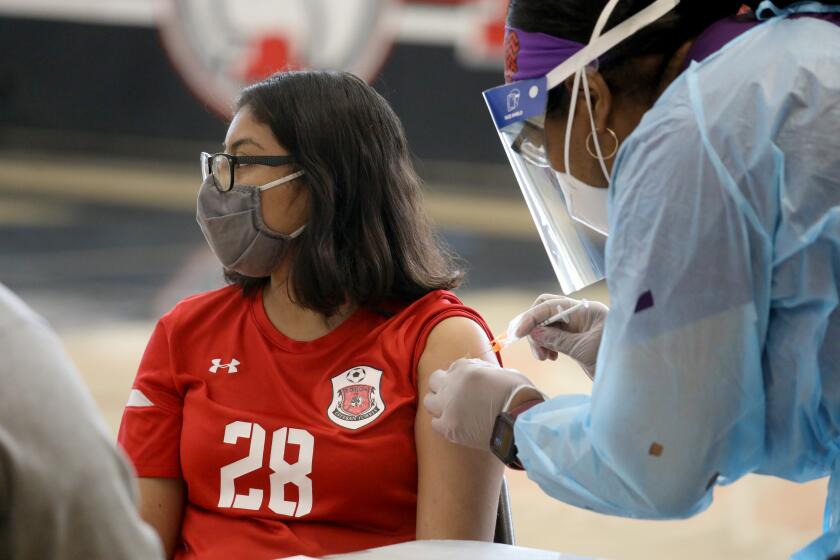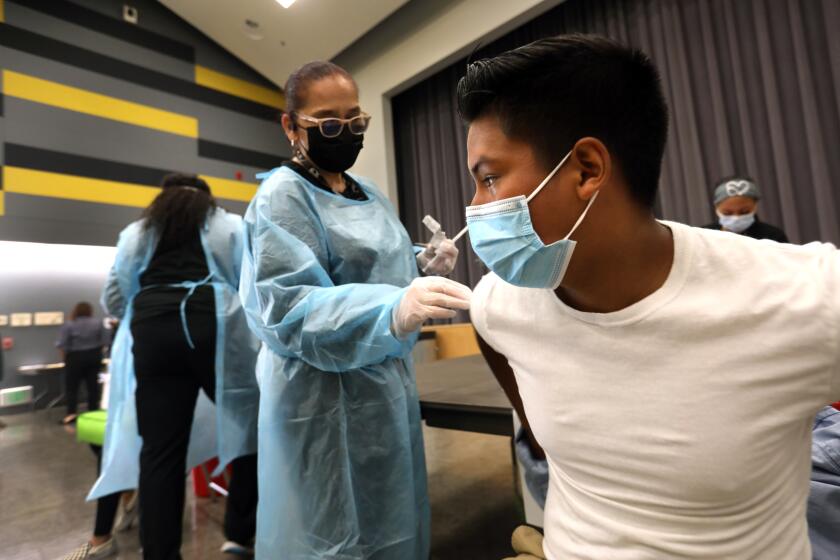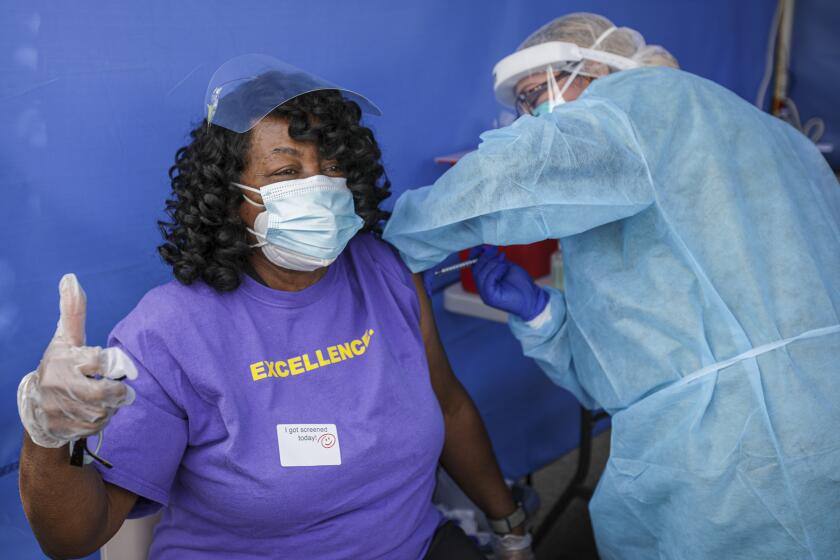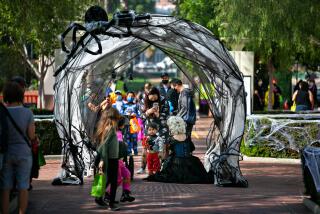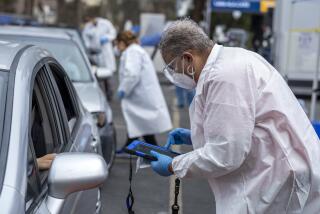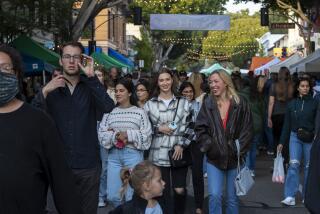A different Memorial Day awaits California as COVID-19 recedes: ‘It’s a relief’
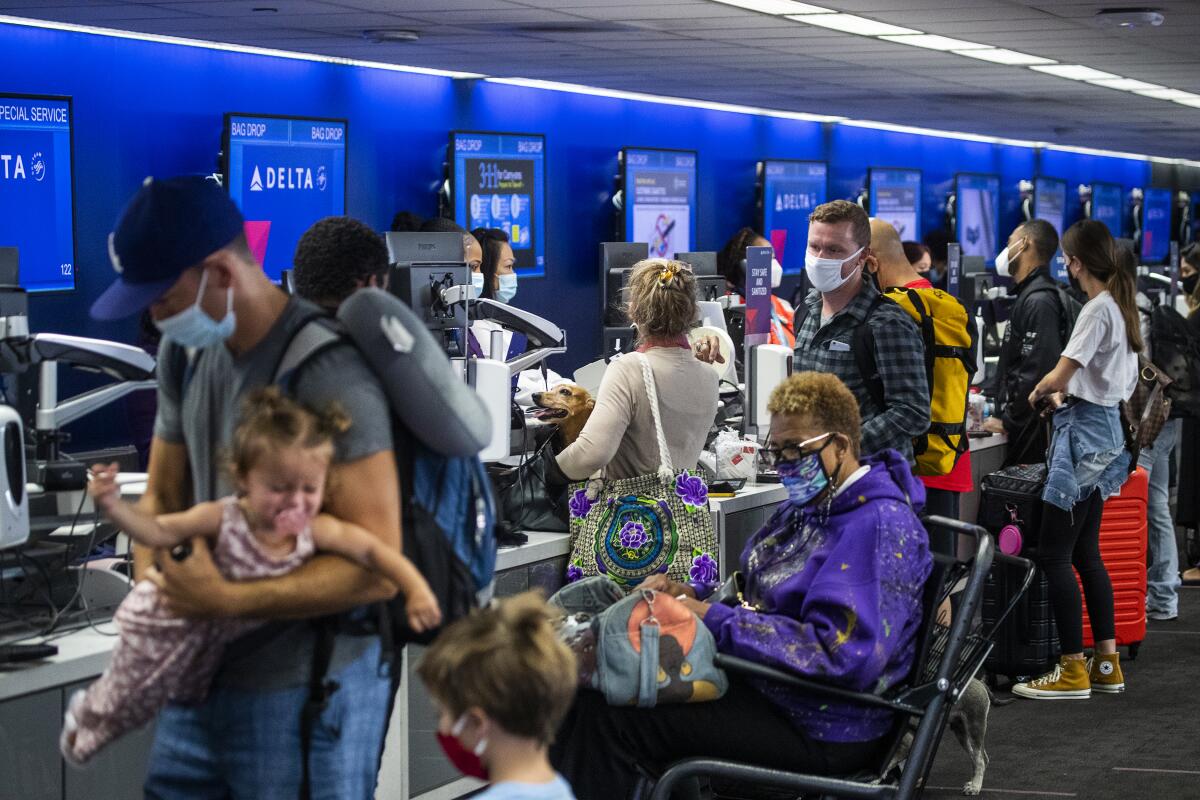
- Share via
With the Memorial Day weekend approaching, many Californians are enjoying newfound freedom as progress in the fight against the coronavirus has made it possible for wide swaths of the state to reopen.
Sound familiar?
California found itself in much the same position last year, and for many, the lure of recently reopened businesses and restaurants, along with the tempting normalcy of backyard barbecues, proved too tantalizing to resist after weeks of living under the state’s strict stay-at-home rules.
It was that fateful holiday weekend that helped plant the seeds for what eventually would grow into the state’s summertime surge — when infections, COVID-19 hospitalizations and deaths climbed to then-unprecedented heights, prompting officials to reimpose sweeping restrictions in hopes of blunting the pandemic’s swell.
The Memorial Day weekend appears to have been the turning point that pushed California into the coronavirus surge it’s seeing now.
This year, though, the arrival of the long weekend is sparking a different reaction, not of anxiety and fear, but of hopeful reflection and acknowledgment of how California is now charting a more promising course.
The shift isn’t lost on those who have long been in the thick of the fight against COVID-19.
“We’re all so glad that this Memorial Day will look so different from last Memorial Day, and it’s a relief for so many of us that we’ll be able to gather with family and friends again,” Los Angeles County Public Health Director Barbara Ferrer said Thursday.
But that optimism still comes with a kernel of caution, and officials warn that Californians should continue taking common-sense measures to protect themselves, their friends and their loved ones.
“This disease has not gone away,” Gov. Gavin Newsom said Thursday. “It’s not taking Memorial Day weekend off.”
‘Patience is required,’ Homeland Security Secretary Alejandro N. Mayorkas warns travelers who will be hitting U.S. airports over Memorial Day weekend.
In much of the state, though, this holiday will be the first in a long time that looks close to pre-pandemic normal.
Beaches and trails are open. Crowds can again flock to the state’s amusement parks, or enjoy a meal inside an air-conditioned restaurant. Throngs of baseball fans are being welcomed back at Dodger and Angel stadiums.
Fifteen of California’s 58 counties — including L.A., Orange, San Francisco and Santa Clara — are in the most lenient yellow tier of the state’s reopening plan, which allows many businesses to operate indoors with some modifications.
Thirty-five other counties are in the next-least-restrictive orange tier, which also allows a swath of sectors to ramp up.
The state’s strictest limitations on private gatherings have also been lifted, though officials stress that outdoor settings remain safer than indoor and that those who are not yet vaccinated for COVID-19 should still exercise caution.
“I know for many it will be a relief to be able to gather together with other families and friends to honor those who’ve passed in their service to us, and also to again enjoy time over the long holiday weekend,” Ferrer said.
California’s ‘Vax for the Win’ program seeks to boost interest in vaccines by offering cash rewards. If you’ve gotten a shot, you’re already eligible.
The biggest difference between this year and last is undoubtedly the availability of COVID-19 vaccines, which are showing tremendous power not just in staving off the worst health impacts of the disease, but also stymying transmission of the coronavirus.
Nearly two-thirds of all eligible Californians — those who are at least 12 years old — have received at least one dose, according to data from the U.S. Centers for Disease Control and Prevention.
While a smaller share of that cohort, 49.5%, is considered fully vaccinated, having such a large slice of the overall population even partially protected means the state is fairly well armored against the possibility of another coronavirus spike.
Between Jan. 1 and May 12, only 4,270 post-vaccination coronavirus cases were reported statewide — roughly .03% of the more than 14.8 million individuals who had been fully vaccinated as of that date, according to figures from the California Department of Public Health.
As of Monday, 2,298 cases of a fully vaccinated person being hospitalized with coronavirus-related illness had been reported nationwide to the CDC, along with 439 deaths. Federal health officials said 23% of those hospitalizations, and 16% of fatalities, were “reported as asymptomatic or not related to COVID-19.”
More than 130 million Americans had been fully vaccinated as of earlier this week.
A new CDC report on “breakthrough” infections in people who have been vaccinated against COVID-19 finds that just 2% of such cases result in death.
Many officials and experts credit California’s vaccine rollout with helping beat back COVID-19.
Over the last week, an average of 1,655 new coronavirus cases have been reported per day, according to data compiled by The Times, and CDC figures show California continues to log the lowest case rate of any state.
The state’s hospital system, once slammed with an overwhelming deluge of patients, is now caring for fewer coronavirus-positive people than at virtually any point in the entire pandemic.
And with so many Californians at least partially vaccinated, there’s growing confidence that the state will avert a future spike the likes of which struck last summer, and again over the fall and winter.
“I think that we are going in the right direction,” Dr. Robert Kim-Farley, medical epidemiologist and infectious diseases expert at the UCLA Fielding School of Public Health, told The Times earlier this month. “We will never have a surge like we had during the viral tsunami of the post-holiday season, just because now we have so many people vaccinated, and so many people have got natural immunity from having had the disease.”
The Times has spoken with people from around Southern California, as well as experts, about COVID-19 vaccines.
Despite that progress, California’s vaccination pace has slowed — with the average number of doses being administered statewide dipping from a peak of about 400,000 per day to closer to 200,000.
In a bid to halt that slide, Newsom on Thursday announced a $116.5-million vaccine incentive program called “Vax for the Win.”
“We’re starting to see a decline in the total number of doses administered on a weekly basis — not as precipitous as some other states, but we are mindful that if we continue down this path and this trend, we’re not going to get where all of us need to be,” he said.
As part of that effort, all Californians who have gotten at least one vaccine dose will be automatically entered into a series of drawings in June for the chance to win one of 10 $1.5-million prizes, or one of 30 $50,000 awards.
The next 2 million people who began their COVID-19 vaccine series starting Thursday and get all the required shots will also be eligible for either a $50 prepaid gift card or a $50 grocery card.
Memorial Day may ultimately be an appetizer to an even more robust summer holiday season.
Come June 15, California is expecting to fully reopen — lifting the coronavirus-related capacity restrictions and physical distancing requirements for attendees, customers and guests at almost all businesses and other institutions, and allowing people who are fully vaccinated to go without masks in most situations.
Father’s Day road trips? Fireworks shows on the Fourth of July? All that’s on the table, provided the state continues heading in the right direction.
“The best way to prepare for a safe holiday, either Memorial Day or July 4, is to be vaccinated,” Ferrer said.
More to Read
Sign up for Essential California
The most important California stories and recommendations in your inbox every morning.
You may occasionally receive promotional content from the Los Angeles Times.
